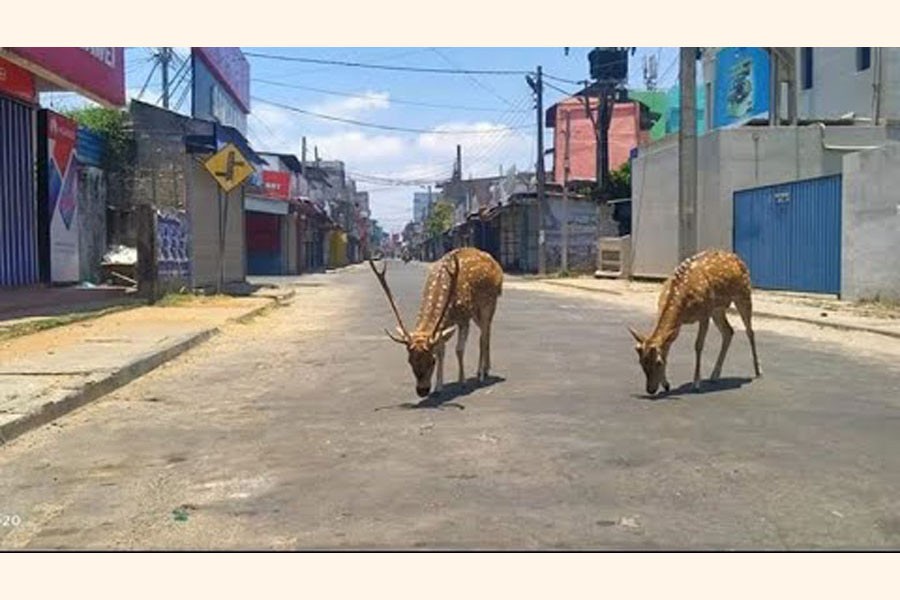The ongoing lockdown has prompted an exodus of lower-income people from cities, the capital city in particular, on the presumption that it might be extended like the general holiday last time was done. Yet the absolute silence that reigned supreme last year during such restrictions on people's movement is absent. But at times no sound of vehicle movement on the street, lane and by-lane is heard. Even the sparse movement of vehicles does not quite go with the city life.
Last time deserted city streets emboldened birds and animals inquisitive enough to venture into residential and commercial quarters of cities of different countries. Dhaka became traffic-free but not deserted enough to invite animals. In fact, wild animals live far away from the capital. But birds---and some of the rare species --- not usually spotted in city areas, took advantage of a transformed environment free from its normal hustle and bustle.
If horns from vehicles are far fewer, piercing hooters from the vehicles of nearby RAB (rapid action battalion) office on their regular rounds or ambulance blaring sirens give one a rude awakening. Sometimes such sounds become indistinguishable from one another to strike terror into soft hearts. Maybe, yet another life is on the verge of extinguishing. When the aazan from mosques calls the Muslim devotees to prayers, there seems to be some assurance of life in the city.
No one has come up with a report of seeing or hearing the type of rare birds seen last time. But in the eerie silence of morning in Mohammadpur where some trees do still exist and happily air pollution was found to be among the lowest in Dhaka city, parrots are heard clamouring energetically. If the lockdown becomes prolonged and stricter, at least some areas of the city may present enough quietness for some more birds to return where once they were regular visitors.
The campuses where teachers and students no longer crowd, have already worn a strange look of wilderness. Wild flowers have adorned the surrounding with grass experiencing a luxuriant growth. But nowhere has the pristine environment returned as much as on the Jahangirnagar University campus. Reports had it that foxes and civets raised their offspring there. Will the wild animals and birds have any chance to reclaim their lost space?
Indeed, all wild animals have made way for one super species that is excessively aggressive and envious to declare itself the lord of all that it beholds. Had this species become contended with a reasonable share in the planet's area and bounties, many of the species that have now become extinct from its surface would still roam about.
The problem with the super species is that it chews more than it can swallow. In other words, it spoils many times more the physical environment than it requires. The lockdown now it has compelled to impose on itself is, in fact, a reminder of this exploitative instinct and practice that are diminishing the chances of survivability of life on Earth.
Unfortunately, the lesson goes mostly unheeded. To live and let live is more a rhetoric than practised. No other species is responsible for plundering environment and abusively exploiting the planet's resources. The limitless demand for comfort and luxury is responsible for such exploitation of Nature. Unless or until the world people come to realise the value of 'other life' and restrain its avarice for wealth, they may have to pay a heavy price for this. This may not be the last pandemic ever to have wrought unprecedented death and damage to resources and economy. More are likely to make their visitations until this arrogant species is brought to its knee.


